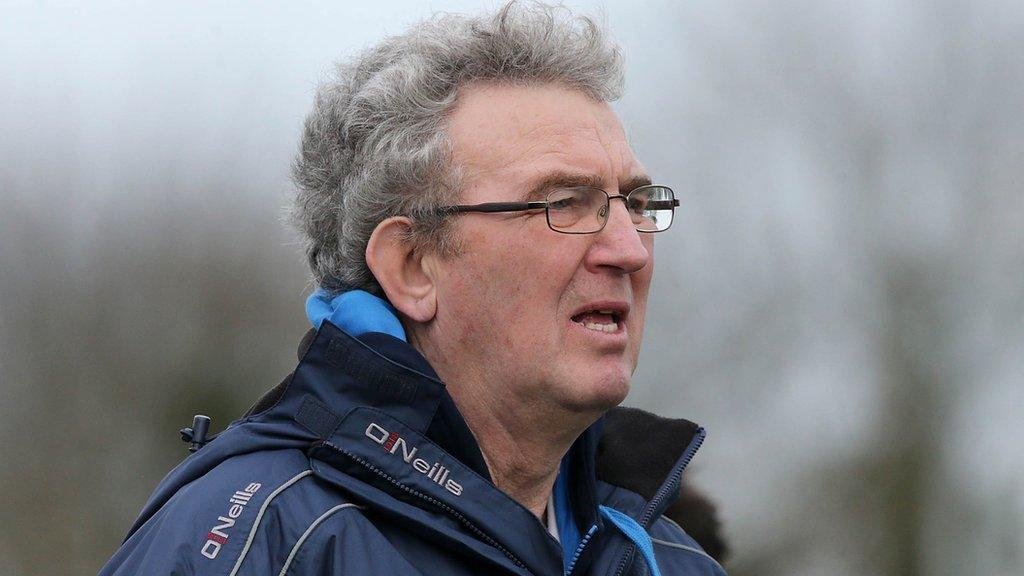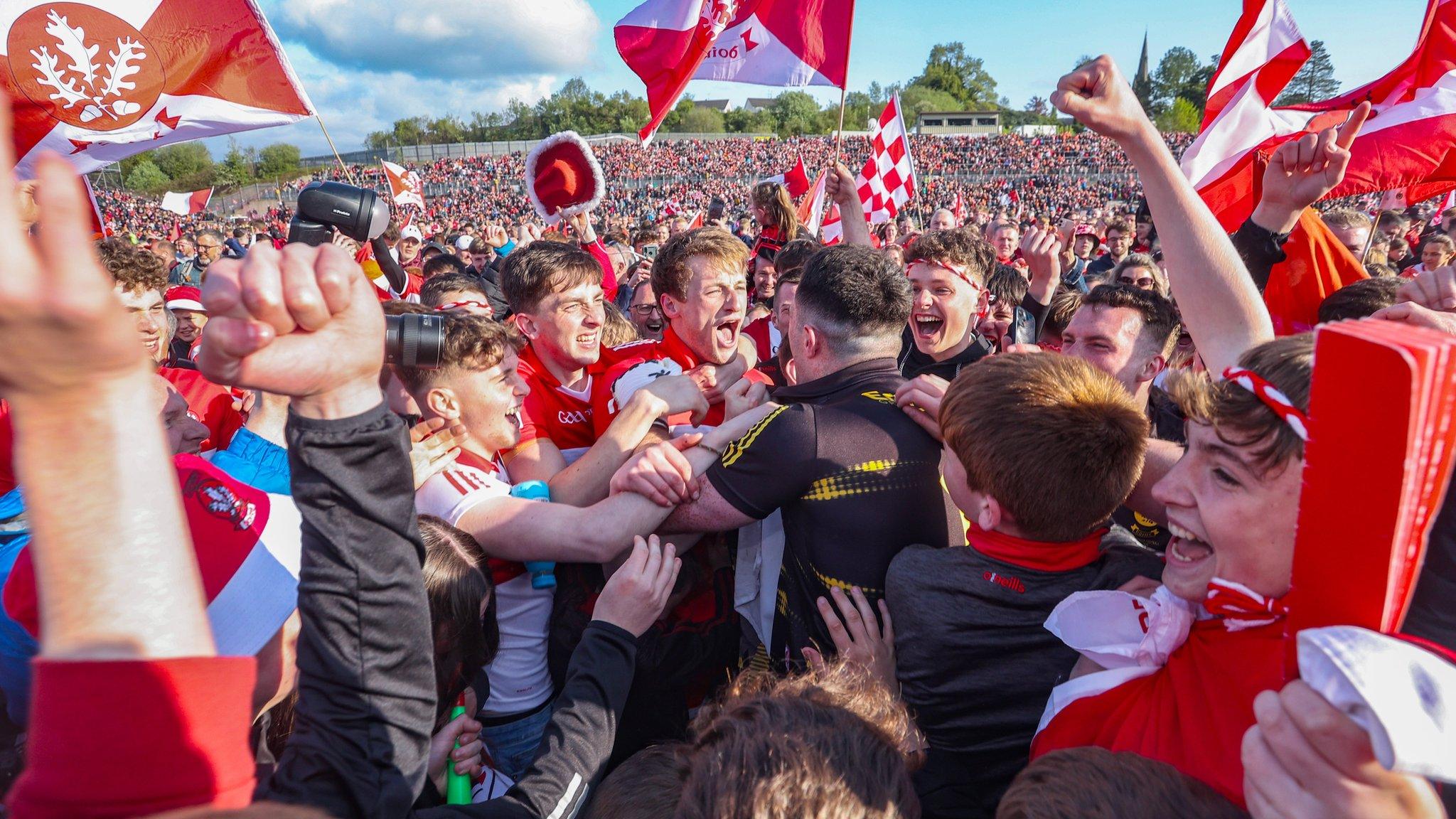GAA Social: Adrian McGuckin 'can't get head around' Mickey Harte managing Derry
- Published

Ballinderry's Adrian McGuckin managed St Pat's Maghera to 12 MacRory Cups and four Hogan Cups.
Former Derry coach Adrian McGuckin has admitted he "can't get used" to watching Mickey Harte managing Derry.
McGuckin described the Red Hands' three-time senior All-Ireland winning boss Harte as "a Tyrone icon."
"He will do a good job but it's hard to watch him standing there with a Derry badge and Derry hat on him," he said.
In the GAA Social podcast, McGuckin reveals he could have played rugby for Ireland and also talks about dealing with the loss of his wife, Vera.
In a wide-ranging interview with Thomas Niblock and Oisin McConville, McGuckin - who had a long and successful career coaching Derry, St Pat's Maghera, Ballinderry and Ulster University - says he has "a good relationship" with Harte.
Harte stunned GAA fans by leaving Louth and taking the Derry job last September, having previously spent 18 years managing the Tyrone senior team, leading them to three All-Ireland titles.

Derry won back-to-back Ulster SFC titles in 2022 and 2023
"Mickey Harte is no different than he ever was; he is a good man, a good coach, his personality hasn't changed.
"Just personally, I can't get used to the fact that Mickey Harte is now managing Derry, purely for the reason I saw him as a Tyrone icon, winning All-Irelands with Tyrone, so I find it hard to watch.
"He is totally Tyrone. When you think of Tyrone you think of Peter Canavan and Mickey Harte, and we [Derry and Tyrone] are rivals.
"I admire him for everything he has done as a person and a football coach, but I can't get my head around this Tyrone icon, a total Tyrone icon, moving over to manage Derry.
"I can't figure it out or get my head around it but good luck to him. I know he will do a good job with Derry because he's proved it one hundred times before."
'I could have played rugby for Ireland'
Before having a successful playing career with Derry, McGuckin spent his formative years playing rugby, winning an Ulster Schools Cup in 1967 with Rainey Endowed.
Despite being one of the few Roman Catholics in a Protestant school, McGuckin insisted he "never had a bad day in it" and claims he was a better rugby player than gaelic footballer.
"I took to it like a fish to water. It came naturally to me," says McGuckin, who played in the back-row.
"I never thought I was that great at gaelic football, though I played on county teams and all that, but I knew I was a good rugby player."
When asked if he felt he could have played for Ireland, McGuckin replied: "I think I could have, yes".
"I was a better rugby player than a gaelic footballer but football was in my DNA, it was what my people were, and I wanted to be a part of it.
"It just finished up that you couldn't play both."

McGuckin was speaking to Thomas Niblock and Oisin McConville on the latest episode of the GAA Social podcast
Love and loss
While he had conversations about signing for Rugby League side Wigan while at teacher training college in Manchester, it was when he met "the match of my life" he knew he had to return home for good.
"I met Vera, who became my wife, during the Easter holidays during my last year at college and that changed everything.
"There was going to be no staying in England after that, that changed the whole plan," he says.
"Vera was a beautiful looking woman, I was reminded many times I was punching above my weight!
"But she was even more beautiful on the inside, the perfect wife, the perfect mother and a brilliant teacher.
"Me and her were joined at the hip. She taught maths in St Pat's and the pupils loved her.
"We went to school together every day, to mass and to all the matches. Then all of a sudden, within a week, everything changed."
Vera died after a short illness in November 2005, leaving her husband, three children and three grandchildren to try to come to terms with their loss. And it was football, predictably, that helped McGuckin begin to get by.
"It wrecked me, it still wrecks me, but you have to learn to live with it.
"It took me a long time to be able to get on with it. Grief eats the stomach out of you, you just can't believe it.
"I took time off school, I went back but I couldn't handle any more. I retired at the end of that year at 56 years of age."
He continued: "I had so much left in myself as a teacher. Maybe if I had waited another six months, I could have gone on another four or years.
"We have 15 grandchildren now and she only saw three of them.
"I feel more sorry for her than myself for what she has missed."